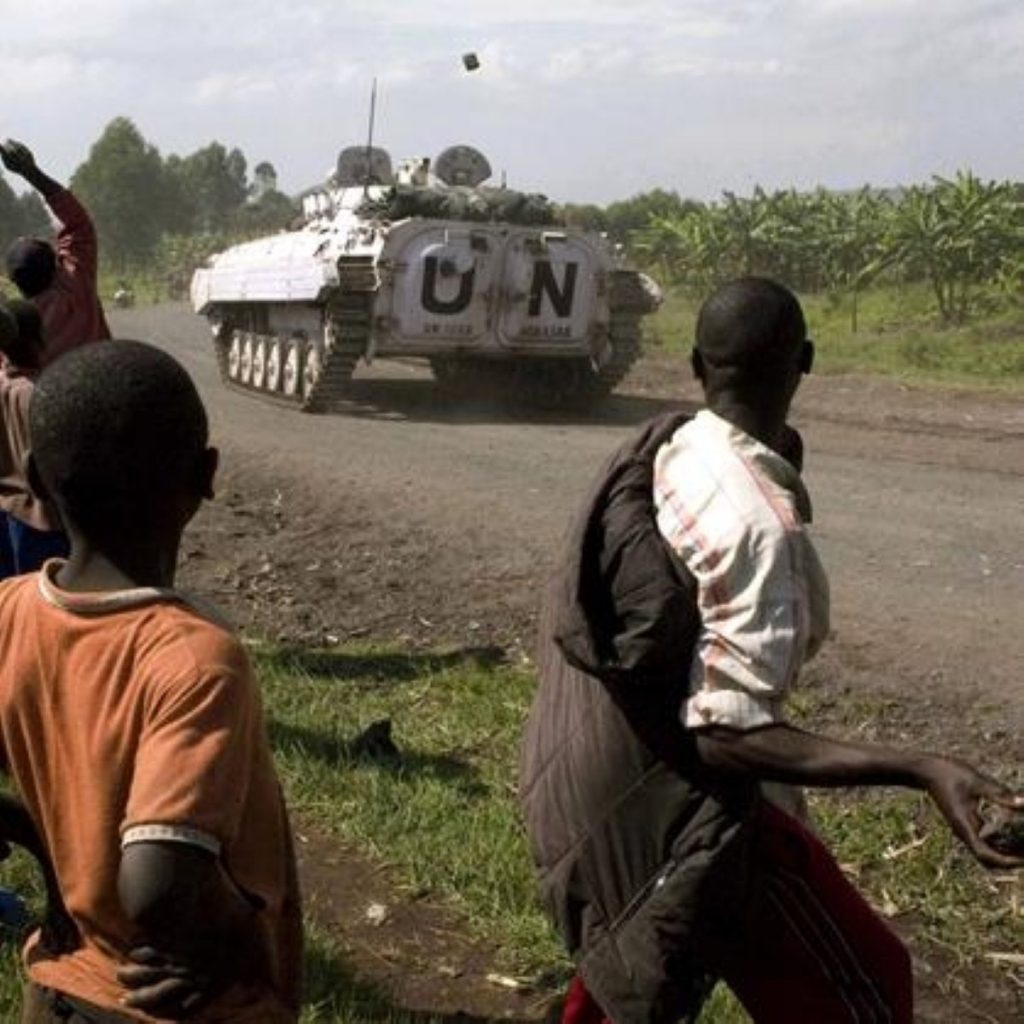EU troops in Congo downplayed
Foreign secretary David Miliband has downplayed sending troops to the Democratic Republic of Congo (DRC), as the humanitarian situation there continues to deteriorate.
In a joint statement with French foreign minister Bernard Kouchner the pair said their visit to the country this weekend had shown them the need for “local and international cooperation” in delivering aid.
Up to 1.6 million people are believed to be trapped in the military confrontation between rebel troops commanded by Laurent Nkunda and government forces.
The humanitarian situation may ease, however, because the rebel leader has reportedly been keen to open up an ‘aid corridor’ into rebel-controlled areas. A UN aid convoy is set to depart from Goma for rebel-controlled territory today.


Government forces abandoned provincial capital Goma last week, leaving just 850 UN peacekeepers opposing their advance into the city.
But the fragile truce initiated last week continues to hold as rebels, camped outside Goma in North Kivu province, await president Joseph Kabila’s response to a request for talks.
Yesterday Foreign Office minister Lord Mark Malloch-Brown had hinted at the possibility of Britain sending extra troops to the region.
Today, however, Mr Miliband sought to play down this possibility. He hopes the UN troops in North Kivu can be reinforced from its other 16,000 peacekeepers based elsewhere in the country.
Instead the joint statement called on Mr Kabila’s government to “honour its obligations” and establish channels of communication with all involved.
“The crisis in eastern Democratic Republic of Congo commands our attention because of the history of the region, the scale of the human suffering, and the fact that all sides say that they agree that the Nairobi and Goma declarations provide the basis for progress,” Mr Miliband and Mr Kouchner said.
“There is no excuse for turning away.”
It is not yet clear whether Mr Kabila will respond positively as many analysts fear he will refuse to negotiate with General Nkunda from a position of weakness.
Mr Miliband and Mr Kouchner are visiting Rwandan president Paul Kagama today as they seek a regional solution to the situation.
“Regional states have a vital contribution to make,” the pair added, citing “promoting peace, developing humanitarian help [and] contributing to the political process” as ways in which Rwanda can “fulfil its responsibilities”.












